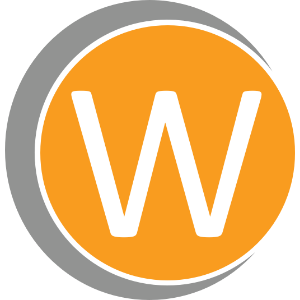Introduction
Job interviews can be nerve-wracking experiences. Whether you’re a seasoned professional or a recent graduate, the pressure of convincing a potential employer that you’re the right fit for the job can make anyone anxious. However, with some last-minute interview tips and strategies, you can boost your confidence and increase your chances of acing the interview.
In this comprehensive guide, we’ll explore a range of strategies and techniques to help you shine in your interview, even if it’s just hours away. From preparing your mindset to perfecting your interview attire, we’ll cover everything you need to know to impress your potential employer and secure the job of your dreams.
Pre-Interview Preparation
Before diving into the interview itself, it’s crucial to prepare adequately:
Research the Company
Before heading into your interview, it’s essential to thoroughly research the company you’re applying to. Delve into the company’s history, values, and culture to gain a deep understanding of its identity. Familiarize yourself with its products or services, recent news or developments, and its position within the industry. This knowledge not only helps you make a strong first impression but also allows you to tailor your responses to demonstrate your genuine interest in the company. It shows the interviewer that you’ve done your homework and are genuinely invested in the organization.
Review Your Resume
Your resume serves as a vital reference point during the interview. Expect questions that require you to discuss the details of your work experience, skills, and accomplishments. Interviewers often use your resume as a framework to evaluate your authenticity and expertise. Be prepared to dive into specific points on your resume, providing context, elaboration, and real-world examples to support your claims. Confidence in discussing your past experiences and achievements can greatly enhance your credibility as a candidate.
Prepare Answers to Common Questions
Anticipating and preparing for common interview questions is a fundamental step in your pre-interview preparation. Questions like “Tell me about yourself,” “Why do you want to work here?” and “What are your strengths and weaknesses?” are frequently asked in interviews. Crafting concise and compelling responses to these questions is crucial. Your answers should not only address the question directly but also showcase your qualifications and enthusiasm for the role. Effective preparation allows you to respond confidently and convincingly, leaving a lasting positive impression on the interviewer.
Boosting Your Confidence
Confidence plays a pivotal role in how you present yourself during an interview. It can greatly influence your performance and the impression you leave on the interviewers. Here are some effective techniques to boost your confidence before and during the interview.

Practice Deep Breathing
Deep breathing exercises are an excellent way to calm your nerves and reduce anxiety before stepping into the interview room. These exercises help regulate your heart rate and oxygenate your body, promoting a sense of relaxation and composure. Before the interview, allocate a few minutes to practice deep breathing to help you enter the interview with a clear and focused mind.
Visualization Techniques
Visualization is a powerful mental exercise that can bolster your confidence. Before the interview, close your eyes and visualize yourself excelling in the interview. Imagine confidently answering questions, maintaining strong eye contact, and leaving a positive and lasting impression on the interviewers. This mental rehearsal can help you enter the interview with a positive mindset and a heightened sense of self-assurance.
Power Poses
Scientific research has revealed the effectiveness of power poses in enhancing feelings of confidence. These poses involve adopting expansive and assertive postures, such as standing tall with your hands on your hips. Spending a few minutes in a power pose before the interview can significantly boost your self-assurance. These poses can affect hormone levels and increase feelings of empowerment, helping you project confidence and competence during the interview.
Perfecting Your Interview Attire
Your choice of attire and personal grooming can significantly impact the impression you make during an interview. Here’s a closer look at how to perfect your interview attire and grooming.
Dress for Success
Selecting appropriate clothing is vital for a successful interview. Your attire should align with the company culture and the expectations of the role you’re applying for. If you’re uncertain, it’s generally better to be slightly overdressed than underdressed. Opt for professional attire, such as a well-fitted suit or business attire, which exudes competence and respect for the opportunity. Ensure that your clothes are clean, free from wrinkles, and properly fitted to present a polished appearance.

Accessorize Appropriately
Accessories should complement your attire, not overshadow it. Keep your accessories simple and tasteful. Avoid wearing flashy jewelry or distracting items that might divert attention away from your qualifications and the conversation. Subtle and classic accessories, such as a modest wristwatch or a pair of professional earrings, can enhance your overall appearance without being overwhelming.
Grooming Tips
Personal grooming is an essential aspect of your overall presentation. Make sure your hair is clean, neatly styled, and well-groomed. If you have facial hair, ensure it’s neatly trimmed. Your nails should be well-maintained and clean. Your shoes should be polished and in good condition. Pay attention to your personal hygiene by freshening up your breath and avoiding heavy fragrances, as strong scents can be distracting or even off-putting during an interview. A well-groomed appearance reflects professionalism and attention to detail, both of which are highly valued in a candidate.
Mastering Body Language
Effective non-verbal communication is a crucial component of interview success. Mastering body language can help you convey confidence, professionalism, and engagement. Here’s a detailed look at key aspects of non-verbal communication.
Eye Contact
Maintaining steady eye contact with your interviewers is essential. It signifies confidence and genuine interest in the conversation. While you want to convey engagement, avoid overly intense or unwavering eye contact, as it may come across as intimidating. Instead, strike a balance by occasionally breaking eye contact naturally when you’re thinking or speaking. This approach demonstrates your attentiveness without making your interviewers uncomfortable.
Handshakes
Offering a firm handshake is a crucial part of the initial greeting. A weak or limp handshake can leave a negative impression, suggesting a lack of confidence or enthusiasm. When shaking hands, be sure to grip firmly and maintain eye contact while doing so. This simple gesture sets a positive tone for the interview and showcases your professionalism.

Posture and Gestures
Your posture speaks volumes about your confidence and demeanor. Sit up straight with good posture throughout the interview. Avoid slouching or leaning too far back, as this may convey disinterest or lack of engagement. Fidgeting should be minimized, as it can be distracting and reflect nervousness. Instead, use natural and purposeful gestures to emphasize points when speaking. These gestures can enhance your communication and make you appear more confident and articulate.
By mastering these elements of body language, you can effectively communicate your qualifications and personality traits, leaving a positive and lasting impression on your interviewers.
Impress with Your Communication Skills
Your communication skills are a critical factor that can distinguish you from other candidates. Here’s a deeper look at how to impress with your communication skills during an interview:
Effective Listening
Effective communication begins with active listening. Pay close attention to the questions posed by the interviewer, and make sure you fully understand them before responding. Respond directly to the questions asked, providing thoughtful and relevant answers. To demonstrate your engagement, use non-verbal cues like nodding to show that you’re following the conversation. Incorporate verbal affirmations such as “I understand” or “That’s a great point” to acknowledge the interviewer’s input and maintain a positive rapport.
Speaking Clearly and Concisely
Clarity and conciseness in your responses are essential. Avoid meandering or going off-topic when answering questions. Provide clear and succinct answers that address the core of the question. Stay focused on the most relevant details that showcase your qualifications and experiences. Rambling or providing excessive information can dilute the impact of your responses and potentially lead to miscommunication.
Show Enthusiasm
Demonstrating enthusiasm is a key aspect of effective communication. Express your genuine passion for the role and the company. Let your enthusiasm for the work shine through in your words and tone. Share your excitement about the opportunity to contribute to the team’s success and how you align with the company’s mission and values. Enthusiasm not only conveys your motivation but also makes you a more appealing and memorable candidate in the eyes of the interviewers.

Handling Tough Questions
During an interview, you may encounter challenging questions that aim to assess your problem-solving skills and character. Here’s a breakdown of how to effectively handle these types of questions
Behavioral Questions
Behavioral questions delve into your past experiences and how you’ve navigated specific situations. To respond effectively, utilize the STAR method (Situation, Task, Action, Result) to structure your answers. Start by describing the situation or task, then outline the actions you took to address it, and finally, highlight the results or outcomes of your actions. This structured approach not only helps you provide a clear and concise response but also demonstrates your ability to reflect on and learn from past experiences.
Tricky Situational Questions
Situational questions present hypothetical scenarios that require thoughtful responses. Before answering, take a moment to think and gather your thoughts. Consider the potential outcomes of different approaches and choose a response that aligns with the company’s values and the desired outcome of the scenario. Express your thought process and reasoning as you formulate your answer, demonstrating your critical thinking skills and ability to make ethical decisions in challenging situations.
Questions About Weaknesses
When confronted with questions about your weaknesses, it’s essential to frame them positively. Instead of dwelling on your shortcomings, focus on how you’ve actively worked to address and improve these weaknesses. Discuss specific actions you’ve taken, such as seeking relevant training or feedback, and highlight the progress you’ve made. This approach not only showcases your self-awareness but also your commitment to personal growth and development, which are qualities highly valued by potential employers.

Follow-Up and Thank You
The post-interview phase is crucial for maintaining a positive impression and continuing your candidacy. Here are the key actions to take:
Send a Thank You Email
A thank-you email is a courteous and professional way to express your appreciation for the interview opportunity. It also serves as a chance to reiterate your interest in the position and the company. Personalize your message by referencing a specific point or topic discussed during the interview. This demonstrates your attentiveness and reinforces your enthusiasm for the role.
Reflect on the Interview
Take some time to reflect on the interview experience. Consider what went well, including moments where you felt confident and your responses were strong. Equally important is identifying areas where you could improve, such as responses that could have been more concise or instances where you wished you had provided additional examples. This self-assessment is valuable for personal growth and can help you better prepare for potential second-round interviews or future interviews.
Preparing for a Second Round
If you advance to the next round of interviews, be prepared for a deeper and more rigorous assessment. Expect more in-depth questions that delve further into your qualifications, experience, and fit for the role. Be ready to provide additional examples of your skills and experiences to substantiate your candidacy. Continue researching the company and the role to reinforce your knowledge and enthusiasm, as second-round interviews often involve more detailed discussions about the company’s expectations and your potential contributions.
Conclusion
Securing a job interview is a significant achievement, and with the right last-minute interview tips and strategies, you can increase your chances of landing the job. Remember to stay calm, confident, and well-prepared. By researching the company, mastering body language, and honing your communication skills, you can leave a lasting impression on your interviewers and pave the way for a successful career move. Good luck!
FAQs
Q1: What are some quick strategies to boost confidence right before a job interview?
A: To boost your confidence before a job interview, take a few deep breaths to calm your nerves. Remind yourself of your qualifications and accomplishments. Visualize a successful interview and remember that the company is interested in you for a reason. Lastly, practice a firm handshake and maintain eye contact, as these can help convey confidence even when you’re feeling a bit nervous.
Q2: How can I effectively research the company and its culture in a short amount of time before the interview?
A: In a last-minute situation, focus on the company’s website, paying particular attention to the “About Us” and “Culture” sections. Look for recent news or press releases. You can also quickly scan through the company’s social media profiles to get a sense of their recent activities and values. This basic research will help you align your responses with the company’s culture and goals.
Q3: What should I do if I haven’t had much time to prepare for commonly asked interview questions?
A: Prioritize the most common interview questions, such as “Tell me about yourself” and “What are your strengths and weaknesses?” Outline concise and relevant responses. Focus on your achievements, skills, and how they align with the job requirements. Even a brief preparation can help you provide thoughtful answers during the interview.
Q4: Are there any last-minute grooming and attire tips that can make a positive impression on interviewers?
A: Yes, grooming matters. Ensure you’re well-groomed, with neatly combed hair, clean nails, and fresh breath. Dress appropriately for the company culture and role you’re interviewing for. Even if you have limited time, make sure your attire is clean, wrinkle-free, and fits well. A polished appearance reflects your professionalism.
Q5: How can I handle unexpected stress or nervousness moments before the interview starts?
A: If you’re feeling stressed or nervous, take a few minutes to breathe deeply and calm your nerves. Practice positive self-talk and remind yourself of your qualifications and the preparation you’ve done. Visualize a successful interview. Arrive early to the interview location, allowing extra time for any unexpected delays. Lastly, bring a bottle of water and take a sip if you feel nervous during the interview to help calm your nerves.
